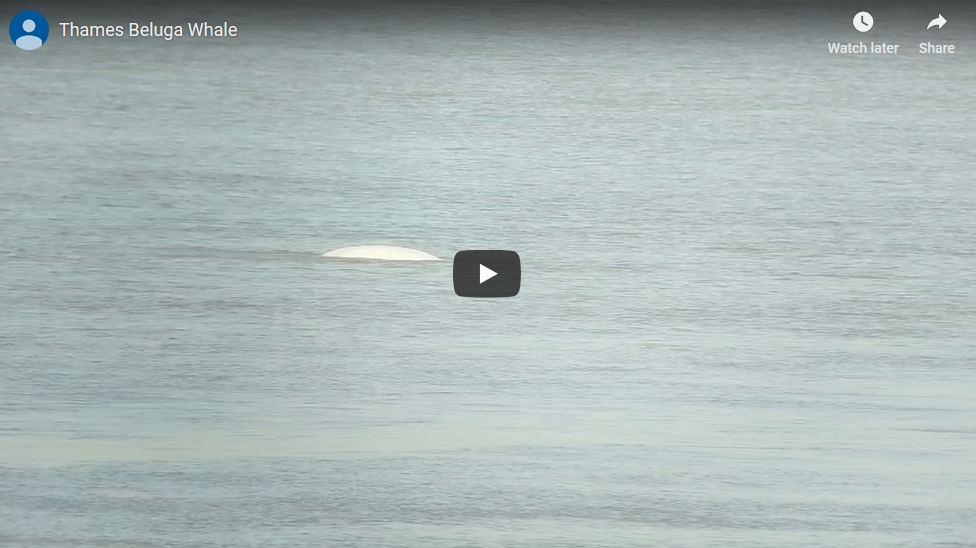This last week has been an interesting for the whale watching community everywhere. On the morning of 25th September a Beluga Whale was spotted in the Thames Estuary just outside of London and the country has been somewhat gripped by his plight. There’s been concern for his well being ranging from monitoring his swimming patterns to ensure he doesn’t end up too distressed and to ensure that well-meaning people hoping to catch a glimpse of him don’t venture on to the water to further stress him as he navigates the unfamiliar environment.
Whilst Orca sightings of the nortern coast of Britain are relatively common, this is a very rare occurance so far south. The last time a Beluga was spotted in UK waters was in 2015 when a pair where seen off the coast of Northumberland and one off the coast of Northern Ireland.
Concerns have grown for the Beluga, now affectionately named Benny, as his days in the Estuary extend. The natural diet of the Beluga, which can grow up to 20 feet long, is jelly fish. As you can imagine in the shallow estuary waters of the Thames in autumn we don’t have too many jelly fish. What we do have is plastic polution – in real terms what this means is that we have plastic shopping bags discarded in the waterways or washed in to our waterways along with other plastic waste, and that to a distressed and confused Beluga could look remarkably like a jelly fish. Benny is being monitored by specialist teams from RSPCA and WDC to attempt to ensure he is kept safe whilst he finds his way back out to sea.
Plastic waste has also been in the news this week as part of a recent study into PCB pollution and it’s affect on the global orca population. Polychlorinated Biphenyl (PCB) is a synthetic chemical compound found in a large range of products, commonly plastics but also electronics, paint, coolants, sealants and other things. The chemical has been banned since the 1980’s because of it’s toxicity and whilst PCBs are no longer produced they are still used in a variety of applications particularly in ageing buildings. The level of PCBs in the ocean has now reached such a level as to be concerning to the future of up to half of the world’s population of killer whales.
This has become most apparent when the West Coast Community found off the coat of Scotland recently lost one of their adults, Lulu, who was found to have well over 20 times the ‘safe’ level of PCBs in her body meaning she has been subjected to a lifetime of marine chemical pollution. There have been no calves born to the West Coast Community in over twenty five years, and should this trend continue this community will be a thing of the past.
Whilst the lasting effects of PCBs will be with us for decades, action is being taken right now to clean up the seas. See here how a group of surfers have come together to try and tackle plastics in our oceans.
Julz 💕

